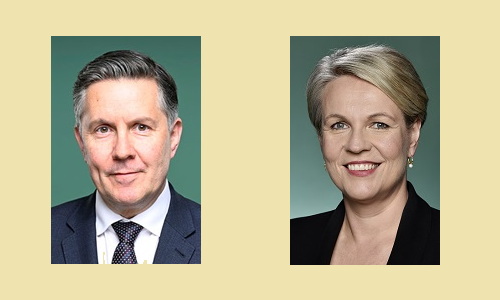The Albanese Government has announced (12 MAY 2025) a significant reshuffle of key social policy portfolios, moving the National Disability Insurance Scheme (NDIS) from Social Services to the Health portfolio under Minister Mark Butler. Tanya Plibersek steps in as the new Minister for Social Services, replacing Amanda Rishworth.
These changes follow a period of instability and shifting priorities, which saw dramatic changes in disability policy direction and leadership, leaving many participants and providers uncertain about the future of the NDIS.
Before the recent election, Bill Shorten – one of the architects of the NDIS – led significant reforms to the scheme.
Prime Minister Albanese stated that the NDIS should align with health, raising the question of whether Mark Butler, now overseeing both health and the NDIS, will continue to advance the reform process, which remains a substantial task.
The new junior minister for the NDIS is Jenny McAllister. McAlister will have responsibility for the day to day oversight of the scheme, reporting to Minister Butler.
What’s Changed?
-
NDIS now sits with Health: Mark Butler, the long-serving Minister for Health and Aged Care, will now oversee the NDIS, signalling a more integrated approach between health and disability supports.
-
Tanya Plibersek takes Social Services: A seasoned advocate for social justice and inclusion, Plibersek brings decades of experience to the Social Services portfolio.
-
Amanda Rishworth departs Social Services and moves to Employment and Workplace Relations.
Mark Butler: A Record of Practical Engagement
Mark Butler has a deep background in health and social inclusion, having previously served as Minister for Ageing and as Australia’s first Minister for Mental Health. He has consistently argued that “the measure of a country is in the support and care it gives to its most vulnerable,” and has made it clear that improving access and quality across the health system for people with disability is a personal and professional priority. Butler has been directly involved in the government’s response to the Disability Royal Commission, emphasising the need for practical reforms that place people with disability at the center of policy and service delivery. While his public record is more focused on systemic reform than on individual advocacy cases, his leadership has seen increased investment in inclusive health services and a commitment to working across jurisdictions to implement Royal Commission recommendations.
Jenny McAllister: Experienced Policy Leader
Jenny McAllister’s background is mainly in public policy, environment and infrastructure. She has held roles such as Assistant Minister for Climate Change and Energy and Minister for Emergency Management. However, she has not previously led a large national social program like the NDIS. Disability and disability advocacy have not been a primary focus in her career. Her experience lies more in environmental policy and community welfare. McAllister brings strong policy experience but limited direct experience with disability programs or advocacy. Prime Minister Albanese commended for her strong attention to detail.
Tanya Plibersek: Social Justice and Inclusion
Tanya Plibersek’s career has been shaped by a strong commitment to social justice, equity, and community inclusion. As a former Minister for Social Inclusion, Housing, and the Status of Women, Plibersek has championed policies supporting vulnerable Australians, including people with disability. Her work in establishing emergency and recovery centres for communities in crisis, and her advocacy for affordable housing and anti-discrimination measures, demonstrate a practical understanding of the barriers faced by people with disability. Plibersek’s approach is informed by her early career in the Domestic Violence Unit and her long-standing advocacy for fair access to essential services.
What to Watch
-
Greater Integration: With NDIS and Health now under one minister, expect a stronger push for seamless support between health and disability systems, especially in hospital discharge, allied health, and foundational supports.
-
Renewed Focus on Inclusion: Plibersek’s social justice background could mean more attention to the intersection of disability with housing, income support, and community services.
-
Stability After Turmoil: After a period of sweeping change and uncertainty, these appointments suggest a move toward more stable, coordinated, and consultative leadership in disability policy.
The disability community will be watching closely to see how these experienced ministers translate their track records into practical improvements for NDIS participants and all Australians with disability.

